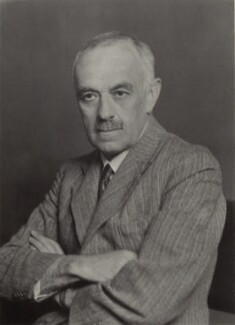Wilfred Eade Agar facts for kids
Wilfred Eade Agar (born April 27, 1882 – died July 14, 1951) was an important zoologist from Australia, originally from England. He was known for his work studying animals. He also received an OBE award and was a Fellow of the Royal Society.
Contents
Early Life and Education
Wilfred Agar was born in Wimbledon, England. He went to school at Sedbergh School in Yorkshire. Later, he studied zoology at King's College, Cambridge. During World War I, he served as a soldier in a famous battle called Gallipoli.
A Career in Zoology
In 1919, Agar moved to Australia. He became a professor of zoology at the University of Melbourne. He worked on some very interesting projects there.
Studying Animal Traits
Agar focused on two main areas. He studied the chromosomes of marsupials. Marsupials are animals like kangaroos and koalas. He also researched how traits are passed down, or inheritance, in cattle.
Challenging Old Ideas
Agar also took on a big scientific debate. He successfully showed that the ideas of Lamarckism were not correct. Lamarckism was a theory that suggested animals could pass on traits they learned during their lives. For example, if a rat learned a trick, its babies would be born knowing that trick. Agar proved this was not true through his research with rats. He showed that only traits passed down through genes are inherited.
Awards and Recognition
Wilfred Agar received several important awards for his work. In 1944, the Royal Society of New South Wales gave him the Clarke Medal. This medal is given for excellent work in natural sciences. He was also chosen as a Foreign Member of the Royal Society. This is a very high honor for scientists.
A street in Canberra, Australia, was named after him. Agar Street is in the suburb of Bruce.
His Book and Ideas
Agar wrote a book called A Contribution to the Theory of the Living Organism. It was published in 1943. This book explored his ideas about how living things work. It was based on the philosophical ideas of Alfred North Whitehead. In his book, Agar also discussed a concept called panpsychism. This idea suggests that all matter, not just living things, might have some form of mind or consciousness.
 | Claudette Colvin |
 | Myrlie Evers-Williams |
 | Alberta Odell Jones |


